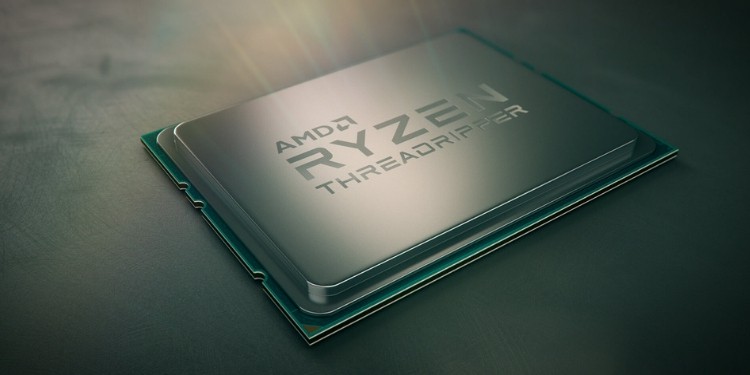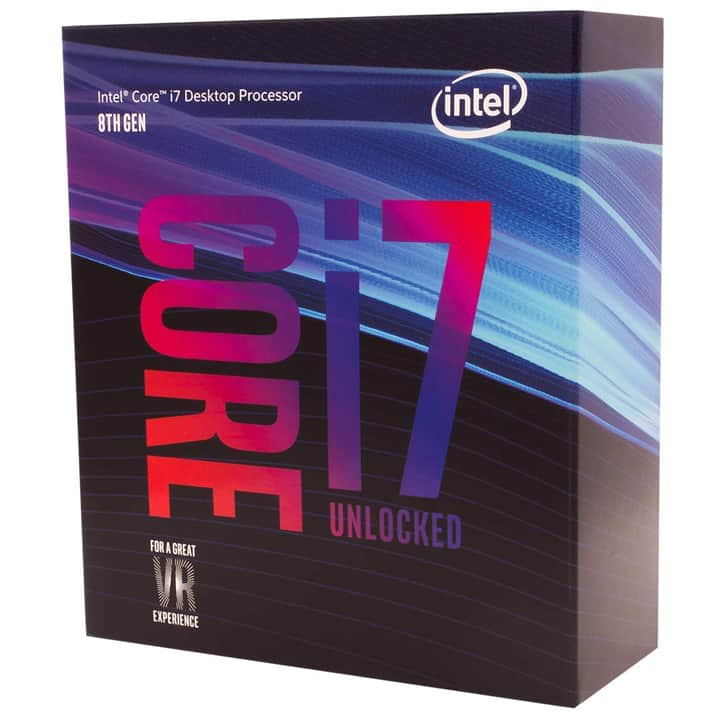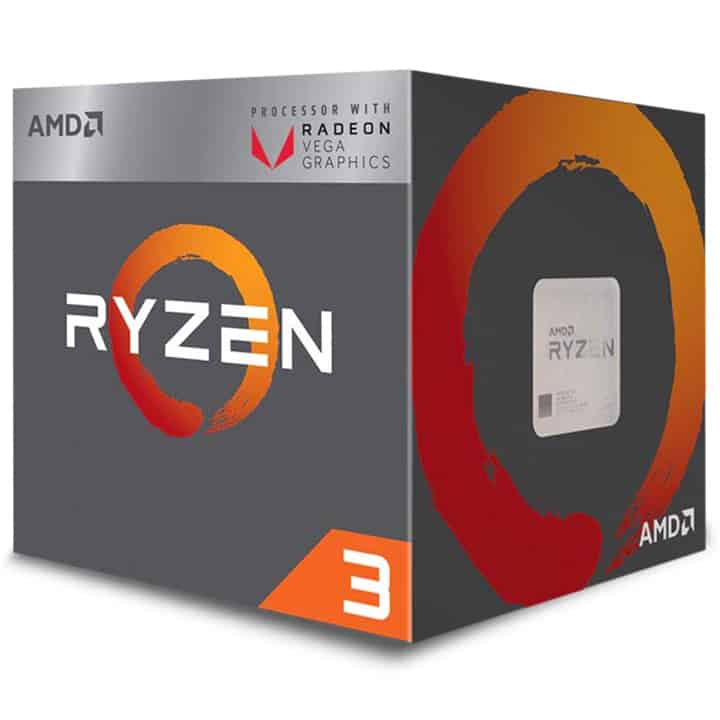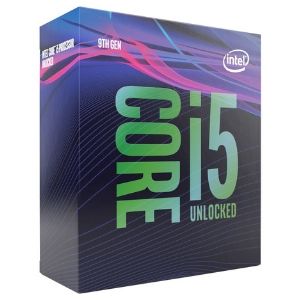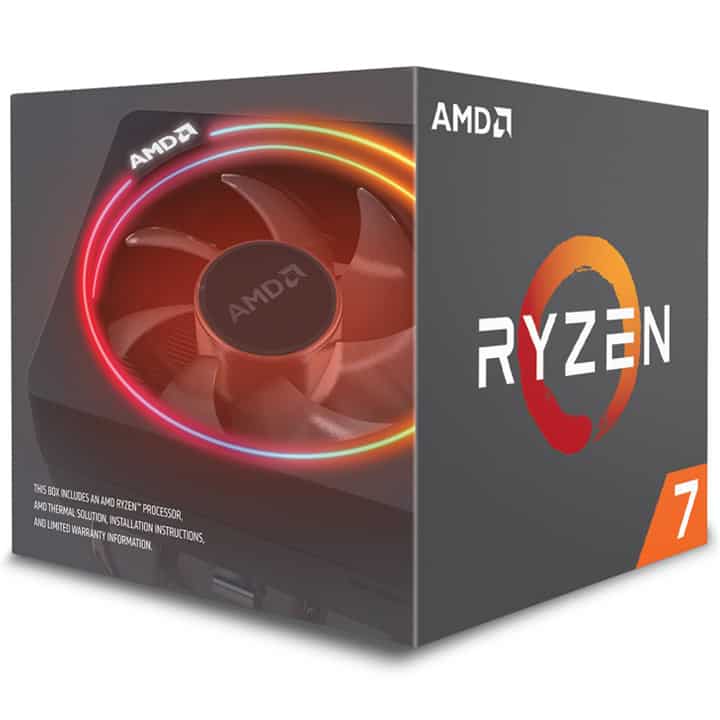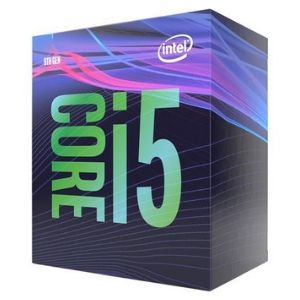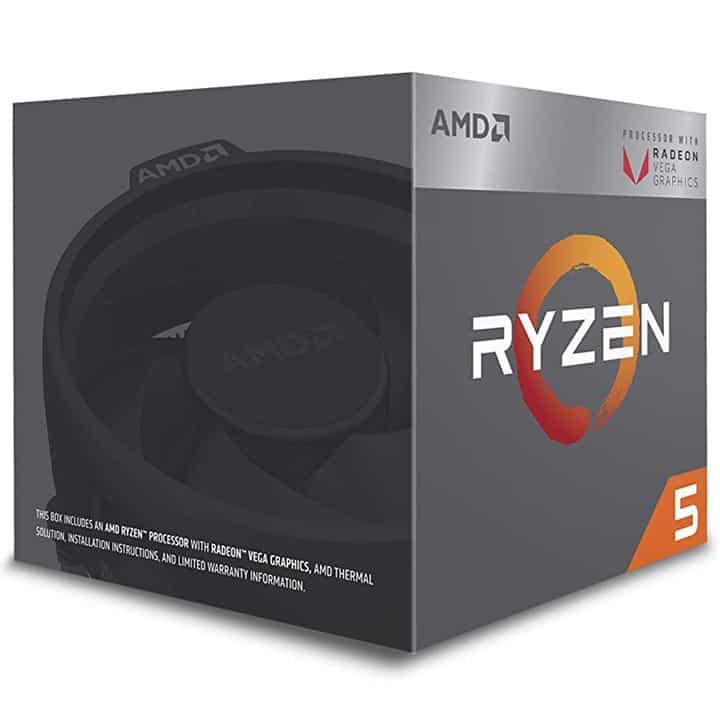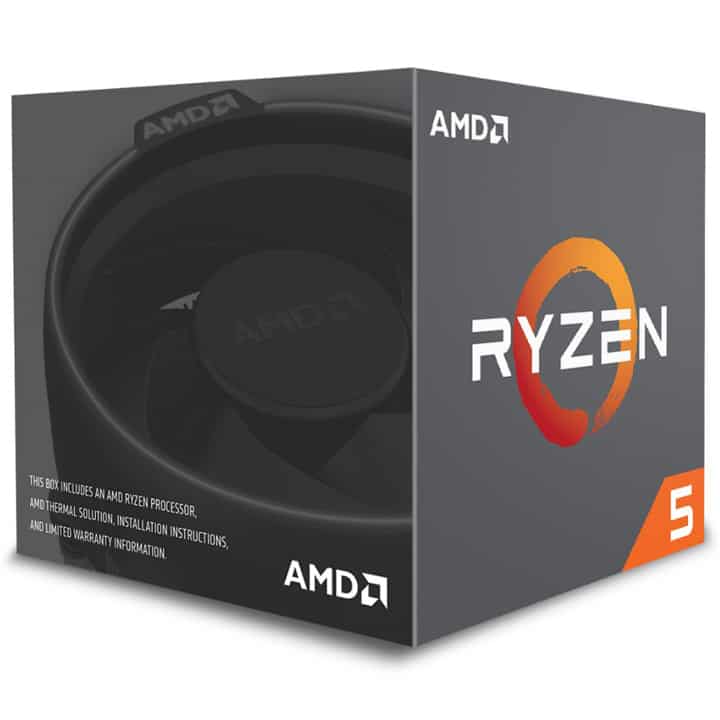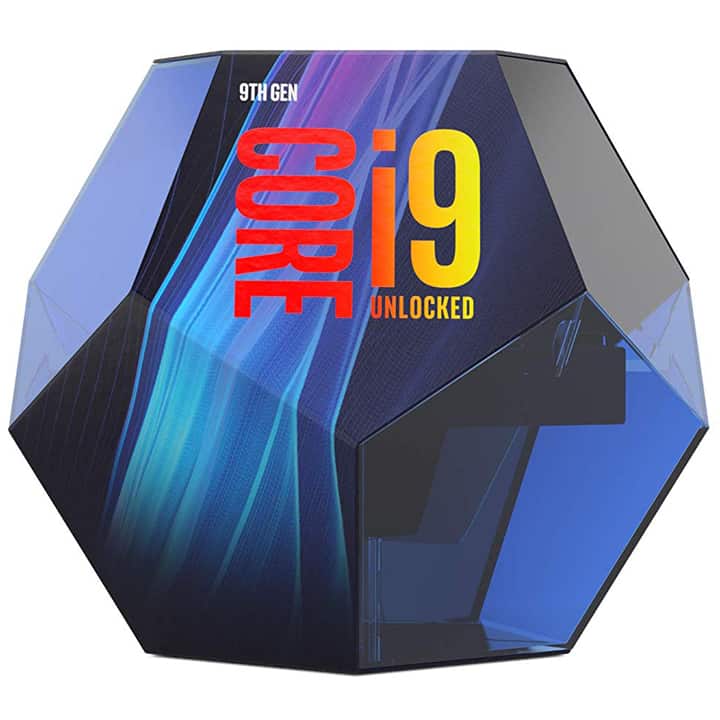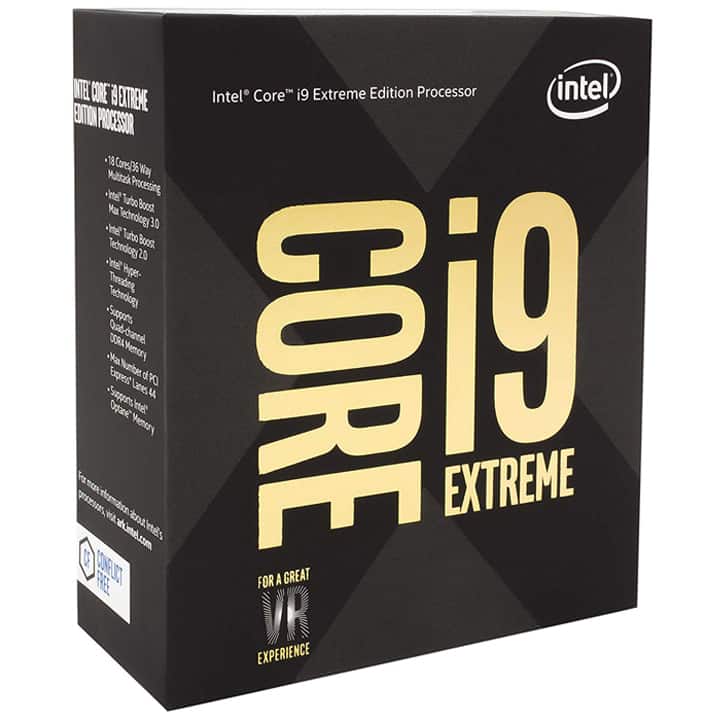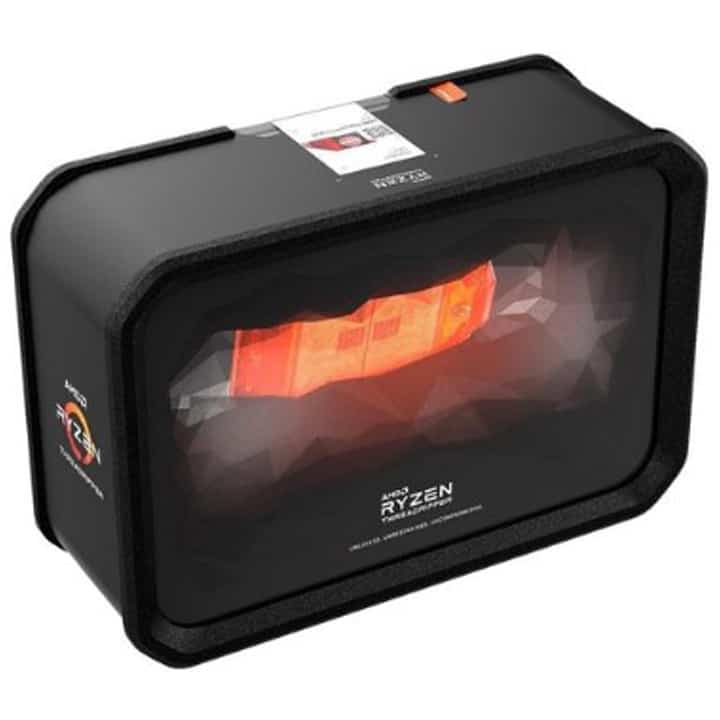What is the best CPU for gaming?
Truth be told, there is no singular best processor for gamers. Depending on your needs, any number of processors on the market could be the best CPU for you. In this article, we’re going to go over ten different options, each of which we believe serves a different type of consumer. Whether you’re a hardcore gamer or a professional with gaming as a hobby, we believe that you’ll find at least one CPU that’s right for you in this roundup of top processors.
If you’re new to PC gaming and PC hardware, don’t worry: we’ve included a buying guide at the bottom of the article to help break down what all these specs actually mean.
Let’s hop into it.
Note: Intel -X or -K series processors do not include stock coolers. AMD’s Threadripper processor also does not include a stock cooler.
best overall
Intel Core i7-8700K
- Cores: 6
- Threads: 12
- Base Clock: 3.7 GHz
- Boost Clock: 4.7 GHz
- Overclockable?: Yes
top budget CPU
AMD Ryzen 3 2200G
- Cores: 4
- Threads: 4
- Base Clock: 3.5 GHz
- Boost Clock: 3.7 GHz
- Overclockable?: Yes
best balanced gaming CPU
Intel Core i5-9600K
- Cores: 6
- Threads: 6
- Base Clock: 3.7 GHz
- Boost Clock: 4.6 GHz
- Overclockable?: Yes
best streaming
AMD Ryzen 7 2700X
- Cores: 8
- Threads: 16
- Base Clock: 3.7 GHz
- Boost Clock: 4.3 GHz
- Overclockable?: Yes
Best CPU For The Money
Intel Core i5-9400
- Cores: 6
- Threads: 6
- Base Clock: 2.9 GHz
- Boost Clock: 4.1 GHz
- Overclockable?: No
best APU
AMD Ryzen 5 2400G
- Cores: 4
- Threads: 8
- Base Clock: 3.6 GHz
- Boost Clock: 3.9 GHz
- Overclockable?: Yes
Good multi-core
AMD Ryzen 5 2600X
- Cores: 6
- Threads: 12
- Base Clock: 3.6 GHz
- Boost Clock: 4.2 GHz
- Overclockable?: Yes
best Intel CPU
Intel Core i9-9900K
- Cores: 8
- Threads: 16
- Base Clock: 3.6 GHz
- Boost Clock: 5 GHz
- Overclockable?: Yes
best overall Intel CPU
Intel Core i9-7980XE
- Cores: 18
- Threads: 36
- Base Clock: 3 GHz
- Boost Clock: 4.4 GHz
- Overclockable?: Yes
best overall AMD CPU
AMD Ryzen Threadripper 2990WX
- Cores: 32
- Threads: 64
- Base Clock: 3 GHz
- Boost Clock: 4.2 GHz
- Overclockable?: Yes
Table of Contents
1. Intel Core i7-8700K
The best overall gaming CPU
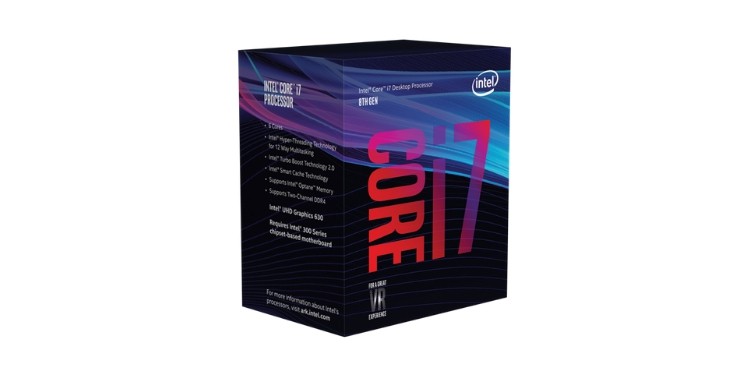
- Cores: 6
- Threads: 12
- Base Clock: 3.7 GHz
- Boost Clock: 4.7 GHz
- Overclockable?: Yes
- Stellar single-core performance
- Strong multi-core performance
- No cooler included
- High price
Until the release of the Intel Core i9-9900K, the i7-8700K boasted the highest single-core performance out of Intel’s entire CPU lineup. Even with the release of the 9700K and 9900K, though, the i7-8700K remains one of the best and is arguably still the best gaming CPU (obviously, it’s also the best i7 for gaming, as well).
Let’s go ahead and skim over the 9700K real quick. The 9700K has 8 cores and 8 threads, unlike the six hyperthreaded cores on the 8700K. In terms of gaming performance, however...
There is virtually no difference. We’re talking less than 5 FPS, if that. Additionally, the 8700K is often agreed to have higher overclocking headroom than the 9700K. The only reason to buy the 9700K over the 8700K is if it’s cheaper-- click here to check if it is. For gaming purposes, these are essentially the same CPU.
The i7-8700K is for users who want best-in-class gaming performance but don’t want to pay hundreds extra for additional cores. Additional cores and threads will come in handy if you’re livestreaming or rendering regularly, but the 8700K is already well-equipped for these tasks.
2. AMD Ryzen 3 2200G
The Ryzen 3 2200G is our top budget CPU
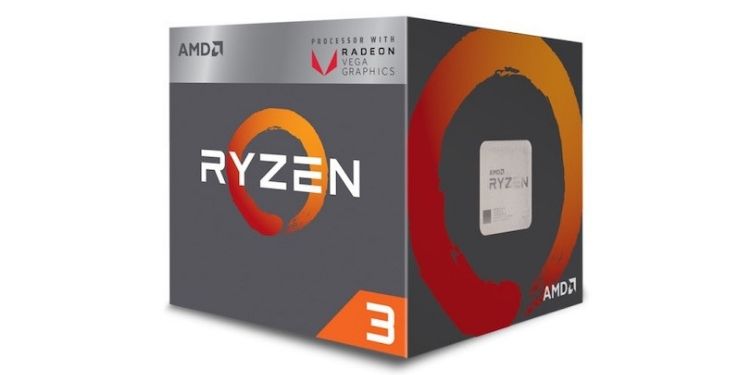
- Cores: 4
- Threads: 4
- Base Clock: 3.5 GHz
- Boost Clock: 3.7 GHz
- Overclockable?: Yes
- Low price, overclockable
- Surprisingly good integrated graphics
- Strong CPU performance
- Lower single-core perf. versus Intel
The Ryzen 3 2200G is our pick for best budget CPU, and there are a few different reasons for that.
First and foremost, it’s just a good CPU in general. It performs about on par with the i3-8100, which is generally a bit more expensive. Secondly is the fact that it’s an APU with integrated graphics that are… good?
Okay, the integrated graphics inside the Ryzen 3 2200G aren’t going to win any awards. They aren’t a replacement for a GTX 1050 or anything. They are, however, capable enough to play modern games at 720p and low/medium settings, which no Intel iGPU can say. If you play older games and eSports titles, you’re in even more luck-- you can easily achieve 1080p60 in CS:GO and Team Fortress 2.
Essentially, the Ryzen 3 2200G is like a cheaper i3-8100 with a free graphics card tossed in. The graphics card isn’t particularly great or anything, but it’s a sight better than any other integrated option, and it’s great for budget PC builders who may want to buy their GPU later. The ideal Ryzen 3 2200G build is one that you buy and slap a strong GPU into it when you can afford it, a niche that Intel can’t really match.
For those reasons, the Ryzen 3 2200G is the best budget CPU.
3. Intel Core i5-9600K
The i5-9600K is our pick for best balanced gaming CPU
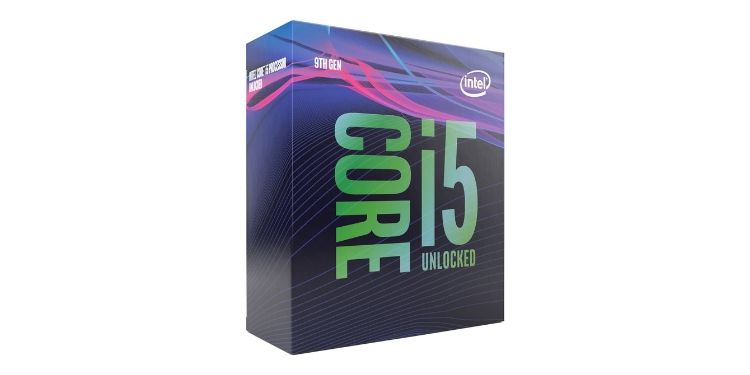
- Cores: 6
- Threads: 6
- Base Clock: 3.7 GHz
- Boost Clock: 4.6 GHz
- Overclockable?: Yes
- Great single-core performance
- Balanced price and features
- No cooler included
- Lower multi-core perf. versus AMD
If you want great gaming performance and overclocking without breaking the bank, the i5-9600K is the obvious choice for you. Intel has always led the pack in single-core performance, and the i5-9600K has six of those powerful cores to utilize, each of which are rated to run at up to 4.6 GHz before any user overclocking.
A little-known secret about Intel CPUs, however, is that gaming performance only increases marginally between the top-of-the-line i5, i7, and even i9 processors. You can get the vast majority of gaming performance from an i5-- all those extra cores and dollars are only necessary if you’re gaming at 144+ FPS or live-streaming, essentially. As such, getting this CPU-- the best i5 for gaming-- will still give you one of the best gaming experiences you can have.
In comparison to its Ryzen 5 rival, the 9600K will have slightly better single-core performance and generally worse multi-core performance. If gaming is your only priority, however, the 9600K remains the better choice in this scenario.
4. AMD Ryzen 7 2700X
The Ryzen 7 2700X is the best streaming CPU
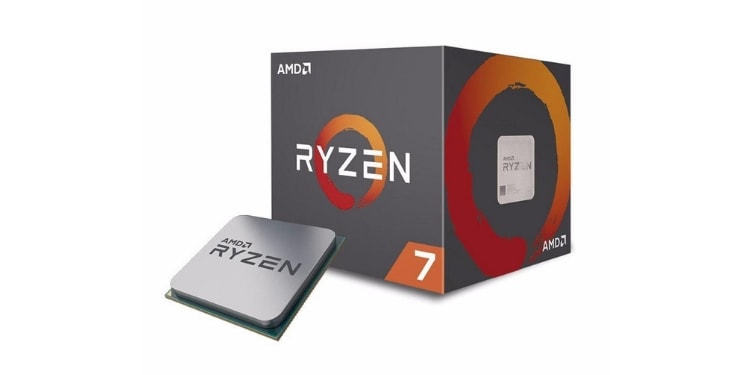
- Cores: 8
- Threads: 16
- Base Clock: 3.7 GHz
- Boost Clock: 4.3 GHz
- Overclockable?: Yes
- Great single-core performance
- Stellar multi-core performance
- Single-core not as good as Intel’s
- High price
If you livestream or create video content for a living… the Ryzen 7 2700X is one of your best choices. Single-core performance has been stepped up on AMD processors across the board, so your gaming performance won’t be too much lower than on a rival Intel processor. Your threads and multi-core performance, however, will be significantly higher, which will make things like livestreaming your games or rendering videos a breeze.
A niche benefit of the Ryzen 7 2700X is its included Wraith Prism Cooler. All of AMD’s Wraith coolers are surprisingly good, but the Prism has the added benefit of fully-fledged RGB lighting, which adds just a little extra cosmetic flair to your build at essentially no extra cost to you. Unless you’re running a low-noise/SFF build, the Prism could perfectly serve your needs, even with some overclocking applied.
Since this is the best AMD CPU, the only reasons not to buy the 2700X are either price or if you aren’t a content creator.
If the 2700X is too expensive, get the Ryzen 5 listed later in this article, instead. It won’t be quite as much of a powerhouse, but it will strike a better balance between single-core performance, multi-core performance, and budget.
If you aren’t a content creator and never plan to be… just grab an i5 or i7, man. Why are you even reading this part?
5. Intel Core i5-9400
The i5-9400 is the best gaming CPU for the money
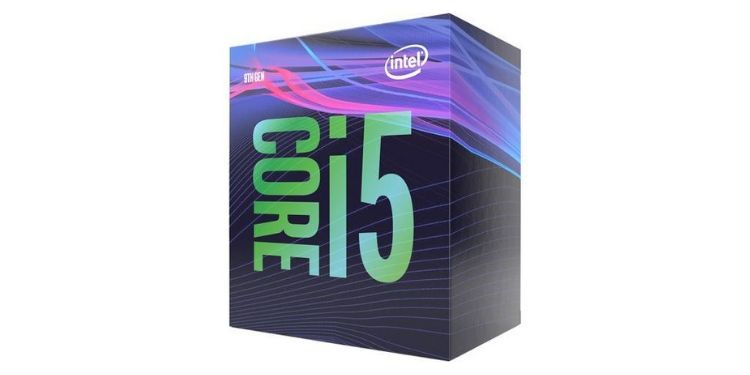
- Cores: 6
- Threads: 6
- Base Clock: 2.9 GHz
- Boost Clock: 4.1 GHz
- Overclockable?: No
- Strong single-core performance
- Very good performance per dollar
- Not overclockable
- Poor integrated graphics
Let’s say you want Intel’s stellar single-core performance, but don’t want to pay the egregious price tag on K-series processors (or Z-series motherboards for that matter). Is there any hope for you, or will you be forced to...
Sorry, sorry. That was a bit melodramatic. The Intel Core i5-9400 is easily the best gaming CPU for the money. You get most of the gaming performance of the i5-8600K, except without the price premiums added for the letter “K” and overclocking support. The other non-K i5s are good options, too, but they generally aren’t available. Feel free to select one of them on the 9400’s page if you please.
In addition to having most of the performance, you also have the benefit of a stock cooler. You aren’t overclocking anyway, and the stock cooler does its job while keeping a low profile and noise level. Versus a K processor, this saves you an extra $20-$30 you’d have to spend on a competent air cooler.
If you want the best value gaming CPU, the i5-9400 is it, hands-down. Unlike the i5-9600K, it also doesn’t have a 9th-Gen equivalent… but even if it did, it would probably only have a 4% performance difference for a 15% increase in price.
6. AMD Ryzen 5 2400G
The Ryzen 5 2400G is the best APU, no question

- Cores: 4
- Threads: 8
- Base Clock: 3.6 GHz
- Boost Clock: 3.9 GHz
- Overclockable?: Yes
- Strong overall CPU performance
- The best integrated graphics performance
- Overclockable
- Too expensive if not using iGPU
The main usage scenario where you’re building a gaming PC with an APU is if you plan on adding a proper GPU later, but want a PC in your hands as soon as possible. The Ryzen 3 2200G already serves this purpose quite well, but it’s still a Ryzen 3 processor. This means it will bottleneck a high-end GPU, which puts a limit on the class of GPU you can save up for.
With the Ryzen 5 2400G, however, you have a Ryzen 5 processor. This means that any gaming-class GPU, up until perhaps the Radeon VII or RTX 2080, will work just fine in your PC without hitting any severe bottlenecks. In this specific scenario, you’ll want the best APU for gaming… you’ll want the Ryzen 5 2400G.
Think of the Ryzen 5 2400G as a Ryzen 5 1500X with an RX 550 slapped on for good measure. That’s...well, that’s pretty much exactly what it is. If you’re going to start your PC build without a GPU, that’s significantly better than relying on Intel’s integrated graphics or having no GPU to speak of at all.
However… there is no reason whatsoever to buy the 2400G alongside a discrete GPU. Get a non-APU processor and spend the extra money on a GPU instead, like the RX 570 or GTX 1050 Ti. Unless the Ryzen 5 2400G is available in the ~$150 price range and other i5/R5 processors simply aren’t, only get this CPU in that scenario.
7. AMD Ryzen 5 2600X
AMD’s best CPU for gaming is the Ryzen 5 2600X
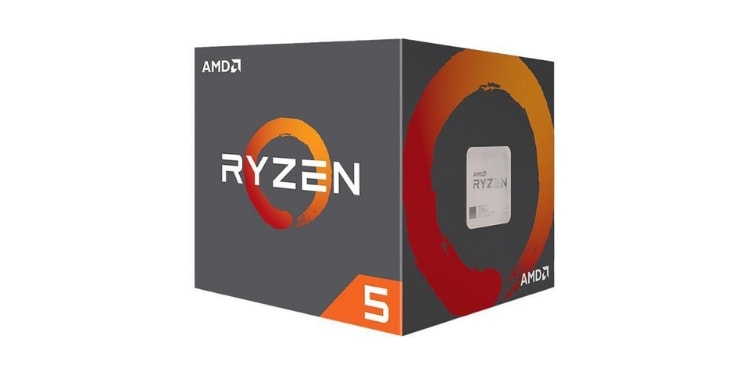
- Cores: 6
- Threads: 12
- Base Clock: 3.6 GHz
- Boost Clock: 4.2 GHz
- Overclockable?: Yes
- Great single-core performance
- Good multi-core performance
- Balanced price and features
- Slightly worse single-core performance than i5
The Ryzen 5 2600X is AMD’s best processor for gaming. Unlike with the i7s or i9s over in Intel-land, there isn’t really any single-core performance boost to speak of in higher-end Ryzen CPUs. The R7 has essentially identical single-core performance to this R5 processor, which means you aren’t really going to see any FPS improvements there. For that reason, the Ryzen 5 2600X remains the best option for gamers on an AMD platform.
Another reason to get the Ryzen 5 2600X is if the streaming/gaming split appeals to you, but you can’t actually afford the Ryzen 7 2700X yet, which is completely understandable. Thanks to AMD’s commitment to keeping the same motherboard socket for more than a few years at a time, you’ll also be able to upgrade to the Ryzen 7 3800X/4900X processors whenever they come out, provided you upgrade your BIOS first.
As always, the typical Ryzen disclaimer applies here. If gaming is your sole concern, Intel is the better route to go.
8. Intel Core i9-9900K
The i9-9900K is the best Intel CPU for gaming
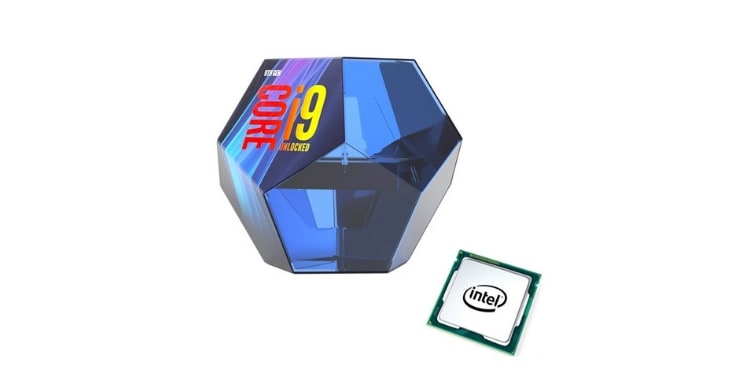
- Cores: 8
- Threads: 16
- Base Clock: 3.6 GHz
- Boost Clock: 5 GHz
- Overclockable?: Yes
- The best single core performance
- Strong multi core performance
- Fairly expensive
- No cooler included
The Intel Core i9-9900K is the best Intel CPU for gaming, but that comes with a few asterisks.
Let’s get the positives out of the way first. Yes, this processor has the strongest single-core performance out of any Intel processor, and therefore out of any processor on the market, period. Since single-core performance is the single biggest determining factor in gaming performance for CPUs… there you go.
Additionally, this processor has fairly strong multi-core performance; arguably the strongest of any mainstream desktop processor’s performance. However, its multi-core performance is beaten by both the i9-7980XE and the Ryzen Threadripper processors, so it’s still not the absolute best multi-core chip you can get. For the purposes of livestreaming and regular video rendering, though, it will more than suffice.
Now for the downsides.
First and foremost, the price. The i9-9900K is pretty dang expensive-- over $100 more than the 9700K, while providing only marginal improvements in single-core performance. The value proposition doesn’t really exist here. While the multi-core performance is significantly better here, you’re also seeing a big diminishing return, because… well, the i7s and R7s already have that covered, even if the i9 is technically better.
If you want the best of the best in gaming performance, the i9-9900K is it. It may even be a better future-proofing option, provided game engines start utilizing more of the available cores in a CPU. If you care even a little about saving money, though, this isn’t the CPU for you.
9. Intel Core i9-7980XE
The i9-7890XE is the best overall Intel CPU
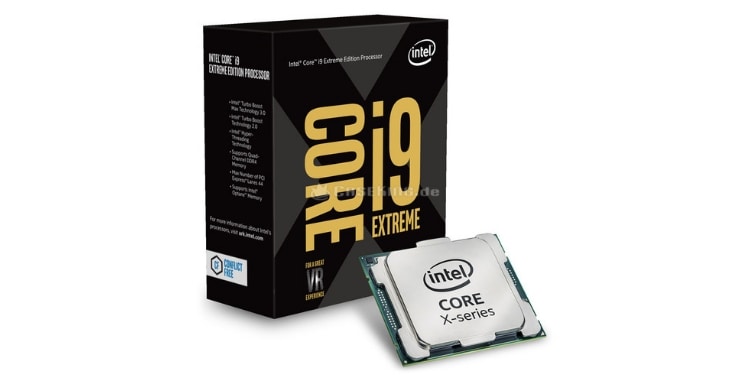
- Cores: 18
- Threads: 36
- Base Clock: 3 GHz
- Boost Clock: 4.4 GHz
- Overclockable?: Yes
- Stellar multi-core performance
- The best Intel CPU
- Loses to Threadripper; costs more
- Poorer single-core performance than desktop i7s
The last two CPUs in this article occupy a curious position, because they aren’t really made for gaming, despite their marketing. They aren’t even made for mainstream desktop purposes, either.
The Intel Core i9-7980XE and its AMD rival, the 2990WX are server processors. They are server-tier processors with server-tier specs that have been inexplicably marketed toward gaming and general consumers, and we genuinely have no idea why.
The only reason to get either of these processors is if you’re running a server, you want bragging rights, or you’re an incredibly impatient professional user who likes to game on the side. For any other purpose, you’d be better served with one of the processors listed above.
In terms of what you need to know about this CPU… it dramatically loses to the Threadripper in multicore despite costing more, and it has single-core performance on par with an i5 8600K. Also, it’s going to run you nearly $2,000.
10. AMD Ryzen Threadripper 2990WX
AMD’s Threadripper 2990WX is the best overall AMD CPU

- Cores: 32
- Threads: 64
- Base Clock: 3 GHz
- Boost Clock: 4.2 GHz
- Overclockable?: Yes
- The absolute best multi-core performance
- Lower temps than Intel rival
- Way too expensive
- Worse single-core performance than Ryzen 7
Pretty much everything we said about the i9-7980XE applies here, too. This product is very much not built for mainstream users, consumers, or gamers. It is a professional/server-grade CPU that is being marketed toward mainstream users… for reasons that we cannot even fathom.
Make no mistake, though: the multi-core performance is nuts, and this CPU is almost always cheaper than its Intel rival. We’re looking at an up to 53% increase in multi-core applications. We do have to give an AMD a pat on the back for that, at least. In terms of single-core performance, you’re looking at pretty much identical SC performance as a Ryzen 5 2600X.
How To Pick The Best Gaming CPU For You
If you’re new to PC hardware, it can be a little tough to discern what all these specs mean. What’s the difference between a core and a thread? How much does clock speed matter? No matter what your question is, we’ll do our best to answer it here or in the comments of this article.
The Difference Between AMD and Intel CPUs
First and foremost, let’s highlight the key differences between AMD and Intel.
In past years, this used to be a vast difference in single-core performance. This was because AMD took a very long time to introduce a new architecture and instead kept reiterating on the same one. This old architecture was very good at multi-core tasks, but ultimately failed to compete on the same level as Intel for many years.
The release of the Zen architecture– which the Ryzen processors are built on– changed this. Now, AMD has stepped up their single-core game significantly, and maintained their excellent multi-core performance. AMD and Intel have never been closer in pure gaming performance, so now gamers have more than one option to choose from.
If you’re a streamer or regular content creator, we recommend leaning toward AMD processors, especially at Ryzen 5/i5 and lower tiers. If your sole concern is finding a good gaming PC CPU, you will see gains by going with the Intel equivalent, albeit at the cost of spending more money and dealing with more restrictions to overclocking, etc.
That’s to say, the best AMD processor is now relatively similar to the best Intel processor, and sometimes even better depending on the use case. There are no wrong choices here– just make sure that you make the right one for you.
Now that you understand the core differences between the two brands and what they have to offer, let’s dive into the nitty-gritty of what specs mean.
Cores and Threads
Cores and threads are similar, but not identical. Cores themselves are where all the processing actually happens. The first CPUs only had a single processing core, so when multi-core processors debuted, it was similar to having multiple CPUs at work in your system simultaneously. Multi-core processors have long since become the standard in the market, though.
In most scenarios, the number of cores will correspond directly to threads. In this case, what you see is what you get, at least as far as core count goes.
In the context of this article, just think of threads as virtual cores, or how a core is seen by the operating system. Hyperthreading is when there are two threads assigned to a single core. This essentially doubles the multi-core performance that you’ll get out of a given chip if it’s enabled, though this doesn’t generally impact gaming performance in any significant way. (Gaming performance is overwhelmingly a single-core affair, and most titles can only use up to four cores.)
4-6 threads are ideal for gamers and light streamers/content creators. 7+ threads is where you start getting into full-time streaming and content creation territory.
Clock Speeds
As a metric to measure performance between AMD and Intel processors… clock speed is useless; there’s no real correlation between a higher clock speed and positive CPU gaming benchmarks. However, as a metric to compare, say, Intel CPUs from five years ago to Intel CPUs now… clock speed is still useless. The underlying architecture of a CPU matters far more than its clock speed.
Where clock speed is useful is when the CPUs that you’re comparing share the same architecture. For instance, your typical i7 processor will have a higher speed than an i5 processor. Provided these are a part of the same generation, this will serve as an accurate measure of their single-core performance in relativity to each other.
With modern processors, this isn’t the most important metric at all. It’s still good to keep in mind when comparing processors from the same brand, though.
Overclockability and Chipsets
The Chipset is the part of the motherboard that determines compatibility and features, more reliably so than the socket. Be sure to check the CPU of your choice against a motherboard’s chipset before buying.
Overclocking is the process by which a user adjusts the clock speed of their processor. This results in performance gains– sometimes marginal, sometimes significant; it just depends on the task, the type of CPU you have, and even the silicon lottery.
Overclocking generally requires higher voltage and better cooling solutions, however, since you’re putting your CPU under more load than it’s meant to handle. Overclocking used to be unrestricted, but in the past decade both Intel and AMD have cracked down on overclocking.
Intel has limited overclocking to their Z- and X- series motherboard chipsets, as well as their -X and -K series processors. Additionally, they also don’t ship their overclockable processors with stock coolers, requiring you to buy an aftermarket cooler for the job. (This is at least partially understandable since Intel’s stock cooler is not something to use for overclocking.)
AMD has limited overclocking to their B- series and X- series motherboard chipsets. Aside from a few very low-end exceptions (namely AM4 Athlons), all of AMD’s mainstream processors are overclockable. They also include AMD’s stock cooler, which is surprisingly good and does provide some overclocking headroom of its own.
If you aren’t an enthusiast or particularly tech-savvy, it’s probably best to stay away from overclocking and save a few bucks on a motherboard. However, if you’re willing to put in the extra work, overclocking is a great way to squeeze extra performance and longevity out of your system.
